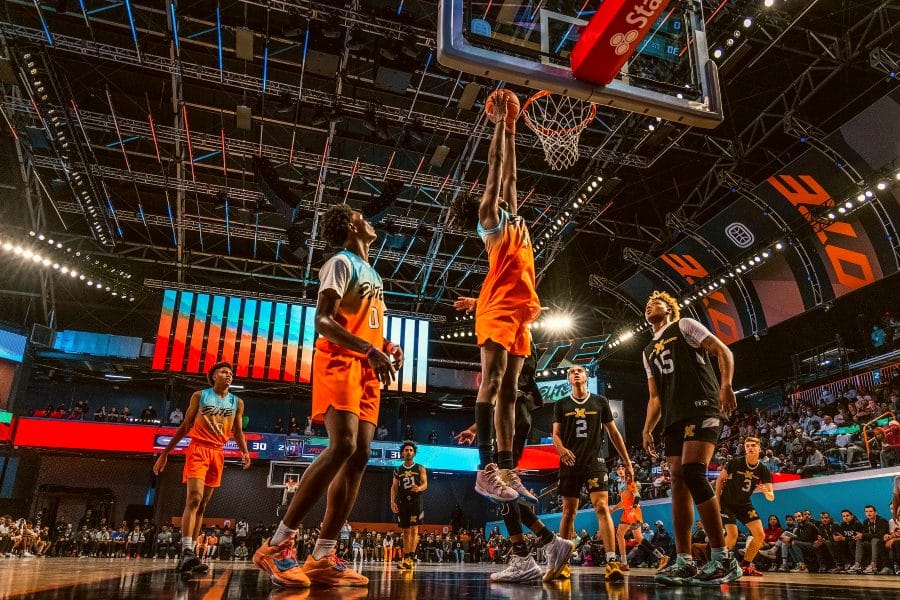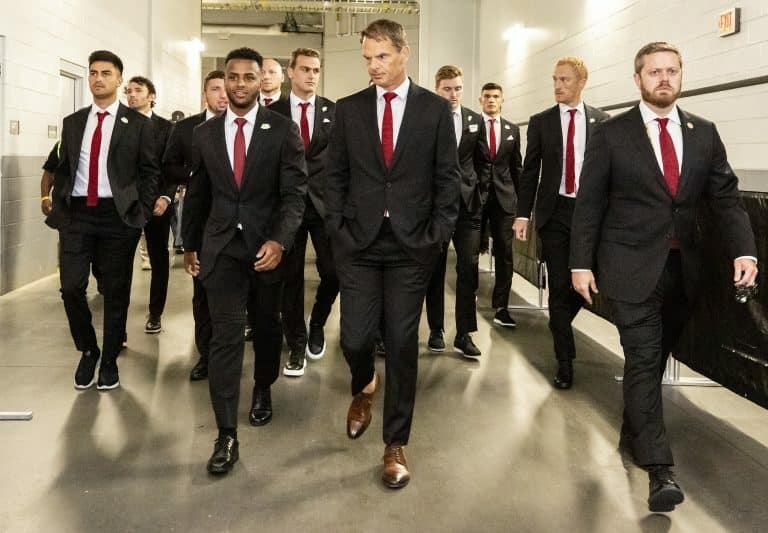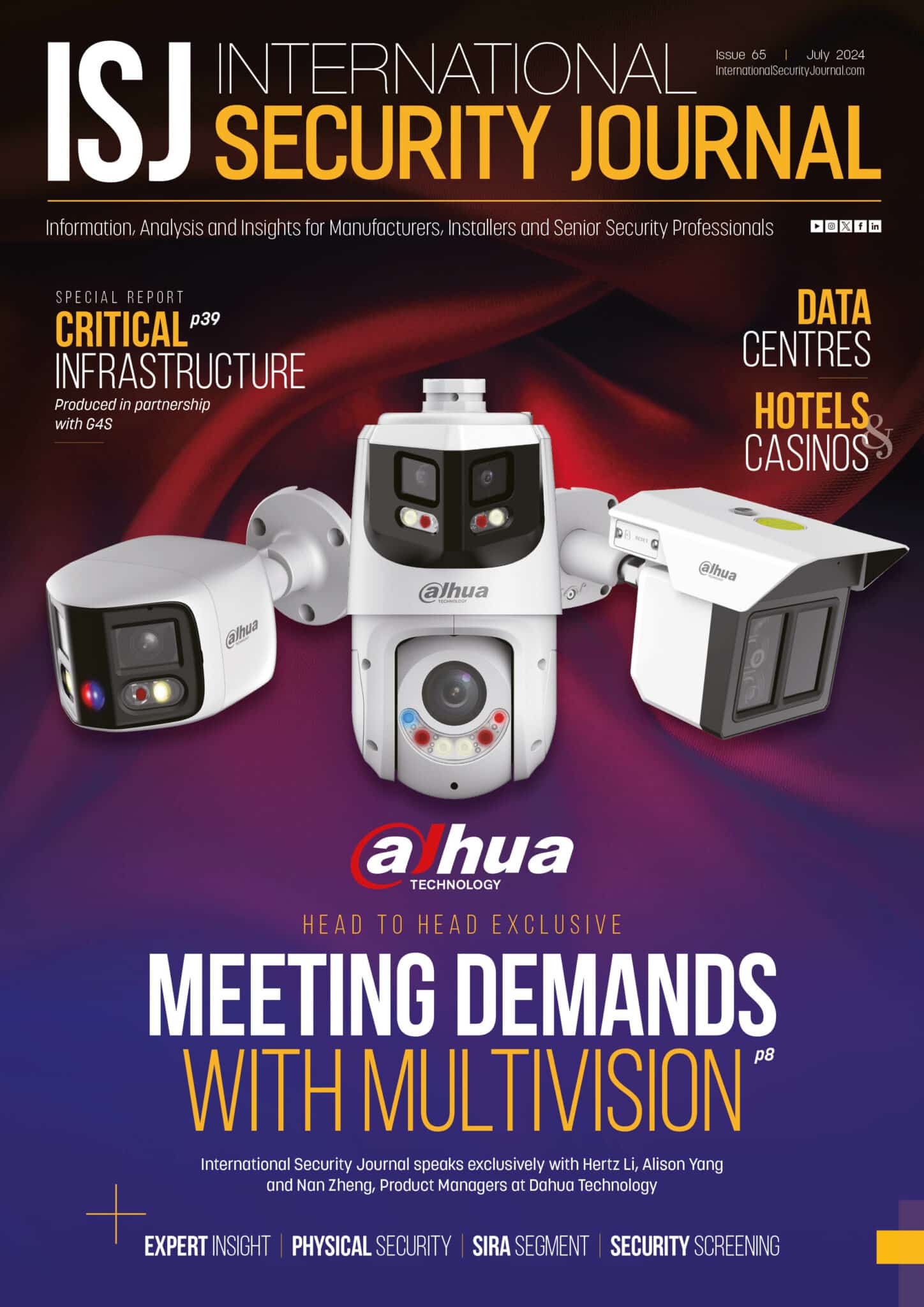Major event security: Ensuring safety and business continuity


James Thorpe
Share this content
Scott Ashworth, Head of Safety and Security, Overtime Elite discusses the key groups protecting fans at major events, businesses and local economies.
As an electric buzz of anticipation fills the air, loyal fans adorned in their team colors flood the streets, converging upon the towering arena like an unyielding sea of excitement.
The moment they’ve been waiting for has finally arrived – a night of unparalleled basketball greatness beckons from within.
But, amidst the throngs of cheer and chatter, a subtle shift in focus becomes palpable. A heightened sense of vigilance takes hold, casting a watchful eye over every individual, every bag and every potential threat.
Welcome to the world of venue security, where safeguarding spectators becomes an art form in its own right.
The venue itself stands as a fortress of concrete and steel, a testament to the unwavering commitment to ensuring the safety and wellbeing of all who step inside.
From the moment fans approach the imposing gates, they enter the buffer zone – a carefully crafted amalgamation of technology, personnel and unwavering diligence, creating an impenetrable shield of protection.
As fans inch closer to the entrance, they encounter the first line of defense: The highly trained eyes of security personnel.
These professionals are skilled in detecting even the slightest anomalies as they meticulously scan the crowd.
Their movements strike a delicate balance between efficiency and thoroughness, swiftly ensuring the safety of all attendees.
However, it is not solely the human element that guards the gates. Cutting-edge technological advancements have found their home within the labyrinthine corridors of the arena.
X-ray scanners, metal detectors, weapons detection systems and high-resolution cameras stand as sentinels, silently augmenting the security measures.
Their presence provides an automated layer of security, alerting personnel to potential risks.
Beyond the realm of overt major event security measures, a web of interconnected systems hums softly in the background.
This intricate network comprises various professionals and groups, all playing their crucial roles in the collective effort to ensure safety, security and business continuity.
Creating a secure environment
Venue management serves as the backbone of the security infrastructure, responsible for developing and implementing comprehensive security plans while contributing to the venue’s design.
Their expertise lies in striking a careful balance between maintaining a safe environment and preserving the enjoyable fan experience.
By meticulously assessing crowd dynamics, planning ingress and egress strategies and devising contingency measures for various scenarios, they ensure that every aspect of security is taken into account.
Venue security staff are dedicated professionals who are the attentive guardians forming the frontline defence of any venue.
Equipped with training and expertise, they possess observational skills, risk assessment abilities and effective communication techniques.
Positioned strategically throughout the venue, security staff members diligently monitor the crowd, identifying any suspicious behavior or unauthorised items.
Their presence not only acts as a deterrent but also provides a sense of reassurance to attendees.

By maintaining a watchful presence and swiftly responding to potential threats, they create a secure environment where fans can enjoy the major event with peace of mind.
On-site engineers skilled in troubleshooting security technology are a vital component of major events that are on occasion missed.
These experts possess deep knowledge of complex security systems and play a crucial role in swiftly diagnosing and resolving technical glitches or failures.
Their presence ensures uninterrupted functionality and minimises disruptions, contributing to the overall effectiveness of the security infrastructure.
These engineers provide a proactive approach by conducting regular inspections, identifying potential issues in advance, and resolving them promptly.
Their ability to troubleshoot on the spot reduces response time and reinforces the readiness of security systems.
By seamlessly integrating within the broader security ecosystem, these engineers contribute to creating a safe and secure environment, enhancing the overall experience for all attendees.
Law enforcement agencies also play a critical role in ensuring venue security. These agencies lend their expertise, resources and collaborative efforts to create a comprehensive security framework.
Local police agencies work closely with venue management to develop security plans, assess potential risks and implement appropriate measures.
Their uniformed presence throughout the venue serves as a visible deterrent and enables them to respond rapidly to any security incidents.
On a larger scale, federal law enforcement agencies are key players in security operations for high profile major events.
Their specialised skills, intelligence capabilities and resources augment the overall security operation.
Collaborating with local counterparts, these agencies share information, conduct joint training exercises and coordinate response efforts to enhance security levels.
Emergency services also play a vital role, not only in handling regular medical emergencies but also in preparedness for other types of crises such as fires, evacuations or hazardous situations.
They work closely with venue management, security staff and law enforcement agencies to coordinate response efforts and ensure a well-organised and efficient evacuation or response plan.
Communication is the key component for these groups to successfully uphold the venue’s security.
Regular meetings and planning sessions allow representatives from venue management, security staff, law enforcement agencies, emergency services and league officials to discuss security strategies, share information and align their objectives.
This collective effort enables the exchange of updates, addresses concerns and facilitates necessary adjustments based on the latest intelligence or developments.
Real time communication systems are employed during events to maintain constant connectivity among stakeholders.
Two way radios, intercom systems and digital communication platforms enable security personnel, venue management, law enforcement and emergency services to relay information, report incidents or request assistance promptly.
In critical situations or emergencies, established communication protocols and clear chains of command ensure the flow of information and decision making processes.
Security staff may communicate with venue management, who then coordinate with law enforcement or emergency services as necessary.
This structured communication guarantees an efficient response and minimises confusion during high stress situations.
Post event debriefing sessions allow stakeholders to evaluate the effectiveness of security measures, identify areas for improvement and share feedback.
Lessons learned from previous events are discussed and best practices are identified to enhance future security operations.
This ongoing communication allows stakeholders to continuously refine their strategies, address issues and strengthen the security framework for upcoming public events.
Beyond the immediate physical threat of a tragic incident, major events can also face significant economic repercussions that affect various stakeholders.
The importance of venue security staff extends to mitigating these economic impacts and safeguarding the interests of businesses, major event organisers and the broader community.
In the absence of effective security measures, the perception of risk and potential threats can lead to decreased attendance and a loss of consumer confidence.
Attendees may be hesitant to participate in events that are perceived as unsafe or vulnerable to security breaches.
This decline in attendance can have a direct impact on event revenue, affecting not only the event organisers but also the local businesses that rely on increased foot traffic and customer spending during these occasions.
From restaurants and hotels to transportation services and retail establishments, a thriving event ecosystem depends on a secure environment that instils confidence and encourages attendance.
Moreover, the economic impact of a security breach can extend beyond the immediate event.
Negative publicity resulting from security incidents can have long lasting effects on the reputation of the venue, the event and the host city.
This tarnished image may deter future event organisers from choosing the venue, leading to a loss of business opportunities and a decline in the local economy.
Additionally, the broader community may suffer from reduced tourism and diminished economic growth, as major events often attract visitors from outside the area who contribute to the local economy through spending on accommodations, dining, shopping and entertainment.
Working together in major event security
The collective efforts of these groups create a secure environment where fans can immerse themselves in the excitement of major events without worry.
The unwavering commitment to safety, continuous improvement of security measures and active participation of fans contributes to the success of security teams.
By working together, the game experience remains memorable, enjoyable, and above all, safe for everyone in attendance.
By diligently fulfilling their role in maintaining a secure environment, venue security staff contribute to the overall economic success of major events.
Their presence instils confidence in attendees, encouraging their participation and supporting the financial viability of the event.
By mitigating potential security risks, venue security staff play a crucial role in safeguarding the economic interests of businesses, event organisers and the community at large.
The impact of their work goes beyond physical safety, ensuring the prosperity and positive economic outcomes associated with major events.


